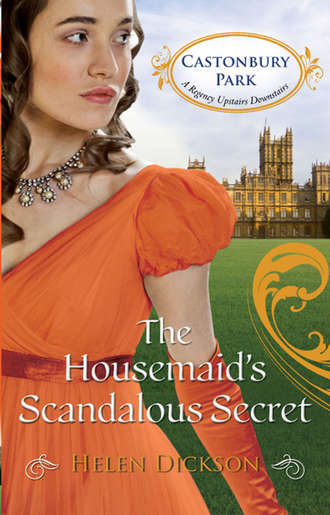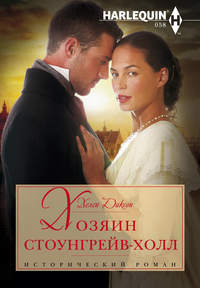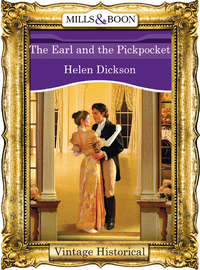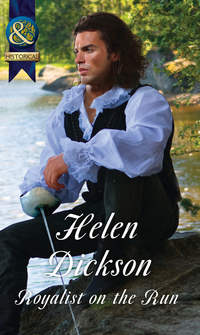
Полная версия
The Housemaid’s Scandalous Secret
Suddenly a swift, agile figure appeared from nowhere.
‘It’s all right, Blackstock,’ the figure shouted to the man who had brought the horse off the ship. ‘I’ll handle him. Give me that horse,’ he demanded of Lisette, holding out his hand for the rein. But as he made to grab it, the horse flattened his ears, stamped his foot and lunged at him, knocking the man sideways so that he collided with Lisette and she started to topple back. Acting so swiftly his movement was a blur, he gripped her upper arms and hauled her forward.
She landed against him, her breasts pressed to his chest, her hips welded to his hard thighs which felt as resilient as tempered steel. The breath was knocked out of her, leaving her gasping. His hands held her upright, his long fingers gripping her arms. His lips thinned, the austere planes of his face hardened and his fingers tightened about her arms. To Lisette’s stunned amazement, he lifted her easily and carefully set her down a couple of feet away from him. When he released her arms she turned to the restless horse.
‘Stop that,’ she scolded, reaching out and jerking the rein reprovingly. ‘You mustn’t stamp your feet. Here, have another sweet.’ The man, a soldier, stared at her. The expression his eyes contained—intensely concentrated—sent a most peculiar thrill through her. She blinked and stared back, and then it was as if she was seeing a dream awake before her. She knew this man. Her body and all its senses remembered him. She knew him by the rich, hypnotically deep voice, and the icy, needle-like chills that were her own response to him.
‘Stepping in front of an out of control horse is a dangerous and extremely foolish thing to do,’ he reproached sternly. ‘Do you make a habit of it?’
‘No, and nor do I make a habit of talking to strangers—and never to gentlemen in uniform,’ she replied, her light mockery laced with gentle humour.
He scowled down at her averted face. ‘And that is your rule, is it?’
For the first time she turned her head and faced him fully. A salvo was fired. It struck home with a crushing weight. Lisette couldn’t have realised that Ross Montague could not trust himself to speak. Her beauty was such that his breath caught in his chest. It brought home to him the starvation of his need to feel a woman’s touch.
‘Oh, absolutely,’ she replied calmly.
With a will of iron, Ross clamped a grip upon himself. ‘Rules are made to be broken—at least mine are. By me,’ he said with an ease he little felt. ‘You could have been maimed for life or worse. But it is clear that you seem to have a way with horses.’
‘I was brought up with them in India where I have lived since I was a child. I love them and they seem to like me—and this is such a beautiful horse. If he’s been confined on board ship for weeks on end no wonder he bolted like he did. I would say he could do with a good gallop.’
Beginning to relax as he looked at this enticing young woman in a dark grey, unadorned gown, his interest growing by the second, Ross gave her a slow smile. ‘I agree, but he will have to be patient a while longer.’ Having witnessed the entire incident and relieved no one had been hurt, this girl had amazed him. ‘I’ve never seen anyone stand in front of a charging horse before. I am impressed. But you do realise that the horse could have killed you, don’t you?’ She gave him a look that was almost condescending, a look that told him she had known precisely what she was doing and that she was more than capable of dealing with a runaway horse. He was indeed relieved that she was unharmed, though he was a little surprised at the strength of his emotions.
Taking the rein, the horse jerked back and for a moment he wrestled with the animal, speaking to him in a soothing voice until he calmed down. Fascinated, Lisette watched him. She didn’t know men could move like that. His coordination was faultless. He was so tall, large and lean but strongly muscled beneath the splendid scarlet-and-gold regimentals that hugged his broad shoulders and narrow waist without a wrinkle or a crease. She felt she should leave him now, this stranger—yet he wasn’t a stranger, not to her. Was this really the same man who had saved her life, the man in whose arms she had spent an entire night, clinging on to him for dear life lest she fall into a raging river?
Tall and arrogant looking, he was olive skinned, almost the colour of a native of India. His hair was dark brown, thick and curling vigorously at the nape of his neck. His eyebrows were inclined to dip in a frown of perplexity over eyes that were watchful. It was his eyes that held her. They were vivid and startling blue, a shade of blue she had never seen on a man or woman before. It was the deep blue of the Indian Ocean—or was it the colour of the peacocks’ feathers that strutted cocksure in the grounds of the rajah’s palace? His face was too strong, his jaw too stubborn and too arrogant to be called classically handsome. His features were clear cut, hard edged. Only his lips, with a hint of humour to relieve their austerity, his intelligence and the wickedness that lit his blue eyes, gave any hint of mortal personality.
‘His name is Bengal,’ Ross informed her, ‘and he was given to me by a maharajah of that place. Sometimes I wonder if he’s a horse at all and not Nimrod in disguise. The Hindus believe in the transmigration of souls and I’m not convinced that in some previous incarnation this horse wasn’t a noble prince dedicated to hunting wild boar.’
‘Then for the love of his sins it would appear he has now descended into the body of a horse with his love of the chase unaltered,’ Lisette said laughingly as the horse nuzzled at her pocket.
Ross met her wide gaze and looked at her long and deliberately, studying the young and guarded face, noting the wariness and schooled immobility with interest. There was something about her, something vaguely familiar that attracted his attention. He had the impression that he had seen her before, but he could not imagine where. He saw a girl slightly above average height, graceful and as slender as a young willow. Beneath her bonnet her blue-black hair was drawn straight back and confined in a black net so that its shining, luxuriant weight tilted her little pointed chin up as though with pride.
When he looked into her eyes which were surrounded by a thick fringe of jet-black lashes, he felt an unexplainable pang of desire. They were intense, large eyes of an unusual honey-gold colour—or was it amber?—and they gave her whole face a magical look. In them were golden flecks of light, reminding him of the tigers of India. She had also acquired the lovely honey-gold skin that no longer looked quite English, yet could never be termed foreign. In fact, she seemed to radiate a feminine perfection, with all the qualities he most admired. Her soft pink lips were tantalising and gracefully curved, full and simply begged to be kissed—in fact, he’d come within a whisker of kissing them already today, but kissing a young woman before being properly introduced was simply not good form.
A flush of colour rose into Lisette’s cheeks, embarrassed as this man studied her with such cool and speculative interest.
‘So you have just returned from India.’
‘Yes. My mistress has instructed me to look for a conveyance. Her husband, Mr Arbuthnot, has recently retired as a factor from the Company.’
‘I see. And you are?’
‘Lisette Napier. I am lady’s maid to Mrs Arbuthnot.’
‘And where is home, Lisette Napier?’ Ross was intrigued and he wondered why, for he didn’t often make conversation with maids.
‘Wherever I happen to be—with my work, you understand.’ Her voice was low and somewhat strained. ‘Before that I lived with my parents in India since I was a small child. But after India—well …’
She felt his interest quicken. Ross bent his head to look into her face. ‘Yes?’
‘Well—it will be … different here in London.’
His teeth flashed in a sudden infectious grin. ‘You will find it very different indeed from India’s hot clime.’
‘Yes,’ she said, trying not to let herself sound too regretful.
‘And your employer? Does she live in London?’
She nodded. ‘Somewhere in Chelsea, I believe.’
He grinned. ‘You will find it dull in comparison to India.’ Ross knew he should take his horse and move on but he was curiously reluctant to do so. Goodness, what was wrong with him, standing here talking to a servant girl when he had things to do. Again his horse nudged the girl’s pocket and with a laugh she produced another sweet, her hand stroking his neck to the horse’s evident delight.
‘You’ll spoil the beast,’ Ross found himself saying.
Lisette saw that in the place of idle amusement was a look of awakened concentration. As their eyes met she shivered with an involuntary surge of excitement. She felt that this was the moment when she should remind him of their previous encounter, and with a multitude of ways of doing so on the tip of her tongue, thought better of it and bit back the words. Explaining her reasons for travelling to Bombay dressed as an Indian girl might prove difficult and tedious, and since they were unlikely to meet again there was nothing to be gained by doing so.
‘He deserves to be made a fuss of after enduring such a long journey. I knew someone who had a similar horse once. She …’
Her voice trailed away. Ross waited for her to speak, to tell him more, but she didn’t. She merely stared into the distance as though she were alone, or he were no more important than his horse. Less so, for she evidently loved horses. He felt a strange sensation come over him and he could hardly believe it himself when he realised he was affronted because she was unconcerned whether he moved on or stayed.
He tried again. ‘How long have you been a lady’s maid?’ he asked, doing his best to be patient, though it was not really in his nature. He had her attention again and she smiled.
‘Oh—long enough,’ she replied, studying him covertly, her gaze sliding over him.
Ross felt the touch of her gaze, felt the hunter within him rise in response to that artless glance. He almost groaned. ‘And is it your intention to always be a lady’s maid? Would you not like to return to India?’
A glow appeared in her eyes. ‘Oh, yes—and perhaps I will, one day, but I have to make my own way in the world, sir …’
‘Colonel. Colonel Ross Montague.’
Ross studied her for a moment, frowning. She was looking at him, silent and unblinking, in the same way the dark-eyed Indian women stared in that unfathomable way. Having lived there for some considerable time, he suspected it was something she had developed almost unconsciously over the years, through her association with some of those doe-eyed women.
Spending many years in India had shaped Ross’s ideal of feminine beauty. He was no great admirer of European standards—the pink and white belles who had begun to invade India, accompanying parents attached in some form to the East India Company. With their insipid colouring, their simpering ways and carefully arranged ringlets, they set their caps at him, attracting him not one whit.
Ross sought his pleasures with the dusky, dark-eyed maidens, who offered a chance of escape from the stifling rounds of British social life, although there had been singularly few of late. This, it may be added, was not from lack of opportunity. Ross Montague was no celibate, but two things obsessed him—India, with its beauty and glamour and its cruel mystery, and the East India Company, with its precious collection of merchant traders from London who were conquering a subcontinent and maintained their own army administering justice and laws to the Indians.
In India fortune had done nothing but smile on Ross. Young men with ambition and ability could go far. He had served with distinction; working his way up through the ranks he had now been rewarded with a promotion to colonel. But on receiving a letter from home, he had felt the sands of his good fortune were running out.
One of his cousins had been killed in the bloody shambles of the battle at Waterloo and another of his cousins, the heir to the Montague dukedom, had been listed as missing somewhere in Spain. Bound by the ties of present and future relationships to the house of Montague, Ross had returned to England at a time when his presence was likely to be of great comfort to his relatives there.
But India held his heart and imagination and he had little time for anything else—and certainly not marriage. He hadn’t wanted a wife before he’d joined the army. Nothing had changed.
‘How old are you?’ he inquired abruptly.
The unexpectedness of the question appeared to take Lisette by surprise, and she answered in unconscious obedience to the authority in his voice. ‘Twenty,’ she replied, having reached that age as the ship sailed round the Cape of Africa.
He raised an intrigued eyebrow, choosing to ignore her awkward response. ‘And you have a place.’
Her mouth quivered, but then she looked away, rather awkwardly. She felt her heart tighten. ‘Not beyond three weeks. Now my employer’s husband has retired from the Company he is to move his family to Brighton where they have a full complement of staff already. I have been told I must seek another situation.’
As she stood there she looked vulnerable for the first time. Her air of impregnable self-sufficiency vanished and Ross saw her troubled and rather desperate. ‘You have references?’
‘Oh, yes—well, just the one. I can only hope it will secure me another position—even that of a scullery maid would be better than nothing at all.’
‘Even though it would be a blow to your pride?’
‘I’m truly not proud,’ she said with a bewitching smile. ‘I’m wilful, I suppose. Stubborn too. And headstrong. But not, I think, proud.’
At that moment appeared Lottie Arbuthnot, her employer’s daughter, treading with care over obstacles and holding her skirts to her sides so as not to mark them on the many barrels and casks piled up on the dock. On reaching Lisette she pricked her with her needle-like eyes.
‘Lisette! Here you are. Mama is becoming quite vexed. How long you have been in securing a carriage.’
Ross turned and looked at her with an apologetic gesture. ‘The fault is all mine—or perhaps I should say it was my horse who waylaid her. Having been released from the confines of his quarters on board, he ran amok when he reached the dock. Had Miss Napier not been so adept at handling horses there is no telling what damage he might have done.’
Staring up at the handsome colonel, Lottie disregarded his comment about Lisette and with a simpering smile fluttered her eyelashes in what Lisette consider to be an appallingly fast manner. ‘Then you are forgiven, sir. I am Miss Lottie Arbuthnot. Miss Napier is servant to my ma and me.’
‘So I understand,’ Ross replied with a wry smile, beginning to feel pity for Miss Napier.
Lottie’s arrival rudely shook Lisette out of the trance that seemed to have taken over her. It wasn’t until that moment that she realised she had lost all sense of propriety. Colonel Montague must think her forward and impertinent. Embarrassment swept over her, washing her face in colour. Lottie was a moody, spiteful girl who had made her life extremely difficult on board ship as she had tried to do her best for both her and Mrs Arbuthnot, to whom she owed much gratitude.
Mrs Arbuthnot had taught her the refinements of being a lady’s maid. She wore a smart black or dark grey dress and starched muslin apron and cap and could dip a curtsey as gracefully as a debutante. But all through the voyage she had been at the mercy of Lottie’s every whim. It must be Lisette who helped her dress, Lisette who brought her tea. Oh, that she would never have to see the girl again!
‘Lisette.’ Lottie spoke peevishly. ‘See, your face is quite red. Are you unwell?’
‘No, I—I think it must be the heat,’ she stammered. ‘Excuse me. I’ll go in search of a conveyance.’
‘Allow me,’ Ross said, handing the horse to Blackstock, who appeared at that moment. In no time at all he had secured a conveyance to take Miss Napier and the Arbuthnot family to Chelsea.
As Lottie continued to prattle on, Lisette saw Colonel Montague was watching her steadily, and she sensed the unbidden, unspoken communication between them. He knows what I’m thinking, she thought. It may be all imagination but she knew he was as bored and irritated by Lottie as she was. She felt instantly ashamed, knowing that Lottie could not help being the person she was.
Feeling in her pocket for some sweets, she handed them to him.
He smiled at her. ‘Are these for me or the horse?’
A gentle flush mantled her cheeks. ‘For Bengal, of course. If he should prove difficult you might be glad of them.’
Lowering her head she bade Colonel Montague a polite goodbye and walked back to the ship, a step behind Miss Arbuthnot. Yet she continued to feel his presence behind her, large and intensely masculine. Her senses skittered—she clamped a firm hold on them and lifted her chin, but she felt a cool tingle slither down her spine and the touch of his blue gaze on the sensitive skin on her nape.
As she walked, Ross thought she did so with the grace and presence of a dancer. As she had told him of her circumstances, he had been taken aback when her look became one of nervous apprehension. How different she’d suddenly appeared from the girl who had stepped in front of his horse, when her proud, self-possession had raised his interest. At first, not knowing what was the matter, he had thought that perhaps she was ill, but then he’d realised that she was afraid. Though her assurance and confidence had aroused him, that glimpse of vulnerability had drawn forth emotions he had only felt once before—in India—with a girl and a raging river … A girl who had also moved like a dancer.
Emerging from the river and seeing her small footprints in the mud, assured that she had survived the night, he had determined to banish the native girl from his mind. But all the way to Bombay he had not stopped looking for the girl in the pink, star-spangled sari and thick, black oiled plait hanging to her waist. The memory of that night and the girl had stayed with him, the way the hot heat of a candle flame stared at for a few moments would burn behind closed eyelids.
Those same emotions made him want to protect this girl, to keep her from harm. His fancy took flight and he imagined himself as her champion, secretly carrying her colours beneath his armour next to his heart, watching that proud smile on her face turn inward to a sweet, imploring look of appeal. Before his imagination could propel him to even more exquisitely poignant pangs of desire, Blackstock told him he would make the necessary arrangements for his baggage to be sent on to Lady Mannering’s house in Bloomsbury.
Ross immediately mounted his restive horse and nosed him away from the dock, the clip-clopping of the horse’s shoes ringing sharp and clear in the bright morning air. But he had made a mental note of where Miss Napier could be located, tucking the information into a corner of his mind to be resurrected when he so desired.
Light streaming through the long windows fell in bright shafts upon the black-and-white marble floor. Ross felt a warm glow. The house belonged to his widowed maternal aunt, Lady Grace Mannering. In his absence the house had lost neither its old appeal nor its very special associations with those happy years he had spent as a boy in London with his sister, Araminta.
Drawn by the bittersweet memories stirred by hearing lilting strains of a merry tune being played on the piano, he strode across the hall to the door of the music room and pushed it open to find Araminta seated at the instrument.
She stopped playing and turned towards the door and the man who stood there. Joyous disbelief held her immobilised for a split second, then she shouted, ‘Ross!’ and amid squeals of laughter and ecstatic shrieks, she bounced off the stool and burst into an unladylike run. Almost knocking him over she flung her arms around his neck in a fierce hug, laughing with joy and nearly choking him in her enthusiasm. Embracing her in return, a full moment passed before Araminta relaxed her stranglehold.
‘Oh, Ross, dear brother, is it really you? You look wonderful. I’ve missed you so much. I don’t know what I would have done without your letters,’ she gushed, hugging him again.
Pulling him down onto the sofa, his legs disappearing amid a flurry of skirts, all at once she launched into a torrent of questions ranging from where he had been, what he had been doing and how long was he going to stay, hardly giving him time to reply.
When he had the chance he studied her closely. Five years had gone by since he had last seen her and the girl he had known had been replaced by a lovely young woman. Her shining light brown hair was a tumble of rebellious curls and her eyes as deeply blue as his own.
‘I’m happy to see you looking so well, Araminta,’ he said, realising just how much he had missed his only sibling. ‘I hardly recognised you. Why, you must have grown taller by half a head in the time I’ve been gone. You look so mature.’
‘And you are very handsome, Ross,’ Araminta declared breathlessly, ‘and so distinguished in your military uniform. You are a colonel now?’
He nodded. ‘I was promoted just before I left India.’
‘Will you go back there?’
‘Of course. I’m home on extended leave—for how long depends on what I find when I get to Castonbury Park.’
Learning of her nephew’s arrival Lady Mannering entered. Her small, rotund figure was encased in deep rose silk and a widow’s cap was atop her sprightly brown hair liberally streaked with grey. As she went to greet her nephew, her eyes were bright with intelligence, set in a soft, lined face.
After greeting his aunt affectionately, Ross sat across from her and looked at her homely face and the light blue eyes that had scolded and teased him and Araminta and loved them so well. His look became sombre.
‘Cousin Giles wrote and told me about young Edward.’
Grace’s eyes filled with sadness. ‘Yes, it was quite dreadful when we heard he’d been killed. There was great relief when Giles came back. As you will remember Edward was so attached to his older brother, but now Giles has resigned his commission. What happened to Edward has affected him rather badly, I’m afraid. And if that weren’t bad enough Jamie is still missing.’
Ross stared at her in stunned disbelief. His cousin Jamie Montague, heir to the magnificent Castonbury Park in Derbyshire, had been listed as missing in Spain a year before Waterloo. ‘Good heavens! I was hoping he’d been found by now. Is there still no word?’
‘I’m afraid not.’
‘No body has been found?’
She shook her head. ‘It’s thought that he was washed away when crossing a swollen river before the push for Toulouse.’
‘Then Giles stands next in line. Knowing of his love for the military life, he will be a reluctant heir.’
‘He was in London recently. It would have been good for you to have seen him before he left for Castonbury. Still, I suppose you’ve been fighting your own battles in India.’
‘I’ll catch up with him there. Castonbury is still my home and I am eager to see my uncle. Giles must be feeling pretty wretched right now. With Edward dead and Jamie missing—and of course Harry busy with his work here in London, he’s going to need someone close.’
‘Family support is always a good thing at a time like this, Ross. All things considered, the Montagues aren’t as invincible as they thought.’
Having been raised with the Montague children, Ross had come to look on the six siblings as his brothers and sisters, and his concern over the disappearance of one and the death of another affected him deeply. Added to this was the financial crisis that had hit the family following the Napoleonic wars. Although the Montagues courted danger, they were his family, to be defended to the death.
‘On top of Jamie’s disappearance, Edward’s death will have affected my uncle very badly.’
‘I’m afraid it has. Everyone is quite worried about him. The letters that Phaedra writes to Araminta tell of his declining health and that his mind is not what it was, that at times he seems to be a little … unhinged I believe was the term she used. Which reminds me. A letter has been delivered from Castonbury Park. It’s from Giles. Would you like to read it now?’









